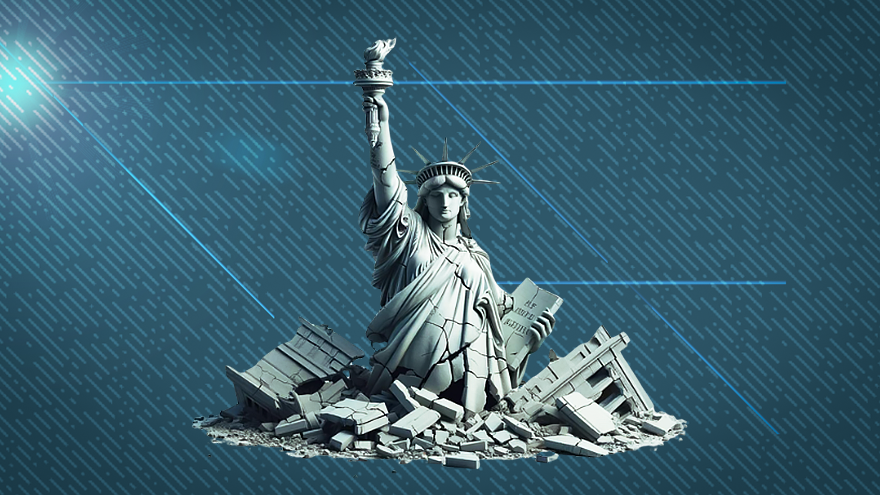During a recent episode of Harvard Thinking, scholars argue that U.S. democracy is facing growing challenges as political polarization continues to worsen and Americans’ faith in core institutions remains on a downward slide. Danielle Allen, director of the Allen Lab for Democracy Renovation at Harvard Kennedy School’s Ash Center for Democratic Governance and Innovation, said there are several indicators that U.S. democracy is fragile right now. “For me, one of the most important ones is the disconnection of younger people to our democracy. Younger people are much less likely to express a high degree of commitment to democracy than older people,” she told the other panelists. “There are indicators around general trust in our political institutions where there’s been massive decline, huge increases in polarization, and of course we are watching before our eyes, month to month, significant governance dysfunction play out in Congress,” she added. “So there are a lot of indicators to suggest that our democracy is not at the healthiest point a democracy can be.” Survey data published last summer by Gallup shows that Americans’ confidence in institutions (including the military, police, medical system, U.S. Supreme Court, congress, public schools, and the presidency) continues to fall. Steve Levitsky, the David Rockefeller Professor of Latin American Studies and professor of government at Harvard, responded by noting that America’s rating has fallen with several organizations that measure levels of democracy in each country in the world. “Freedom House, for example, a decade ago, U.S. had a pretty decent score of 94,” he said. “That put us on par with Canada and Japan and Germany and the U.K.; today [it] has us at 83, which is still a democracy, but it is tied with Panama and below Mongolia and Argentina, so that’s a step backward.” Levitsky added that he believes “some of our democratic institutions are functioning less democratically” not just because of lawmakers being influenced by voters or lobbyists, but because of threats of violence. He reached this conclusion, he said, after receiving confirmation by several current and former congresspeople, as well as statements written in a recent biography of Utah Sen. Mitt Romney. “That they are making decisions or not making major decisions calculating the potential violence or threats of violence against them or their families. That suggests to me that we’re living in a polity that’s less democratic than it was a decade ago,” Levitsky said. The episode was released within days of the latest Freedom House report which concludes that democracy’s decline is not an exclusively U.S. phenomenon. For the 18th consecutive year, global freedom declined, the report stated. “The rejection of pluralism by authoritarian leaders and armed groups during 2023 produced repression, violence, and a steep decline in overall freedom,” said Freedom House. “This year, voters around the world will be asked to embrace democracy despite the countervailing forces of division and exclusion.” In 2024, more than two billion voters in at least 64 countries, plus the European Union — a combined population of roughly 49 percent of people in the world — will be holding national elections. “The results of these elections will shape the international environment for years to come,” Freedom House said.New warnings are being issued about the threat to democracy at home and abroad.
2024 Election /
Democracy Is In Decline, Experts Warn
The results of 2024 elections 'will shape the international environment for years to come'

*For corrections please email [email protected]*
